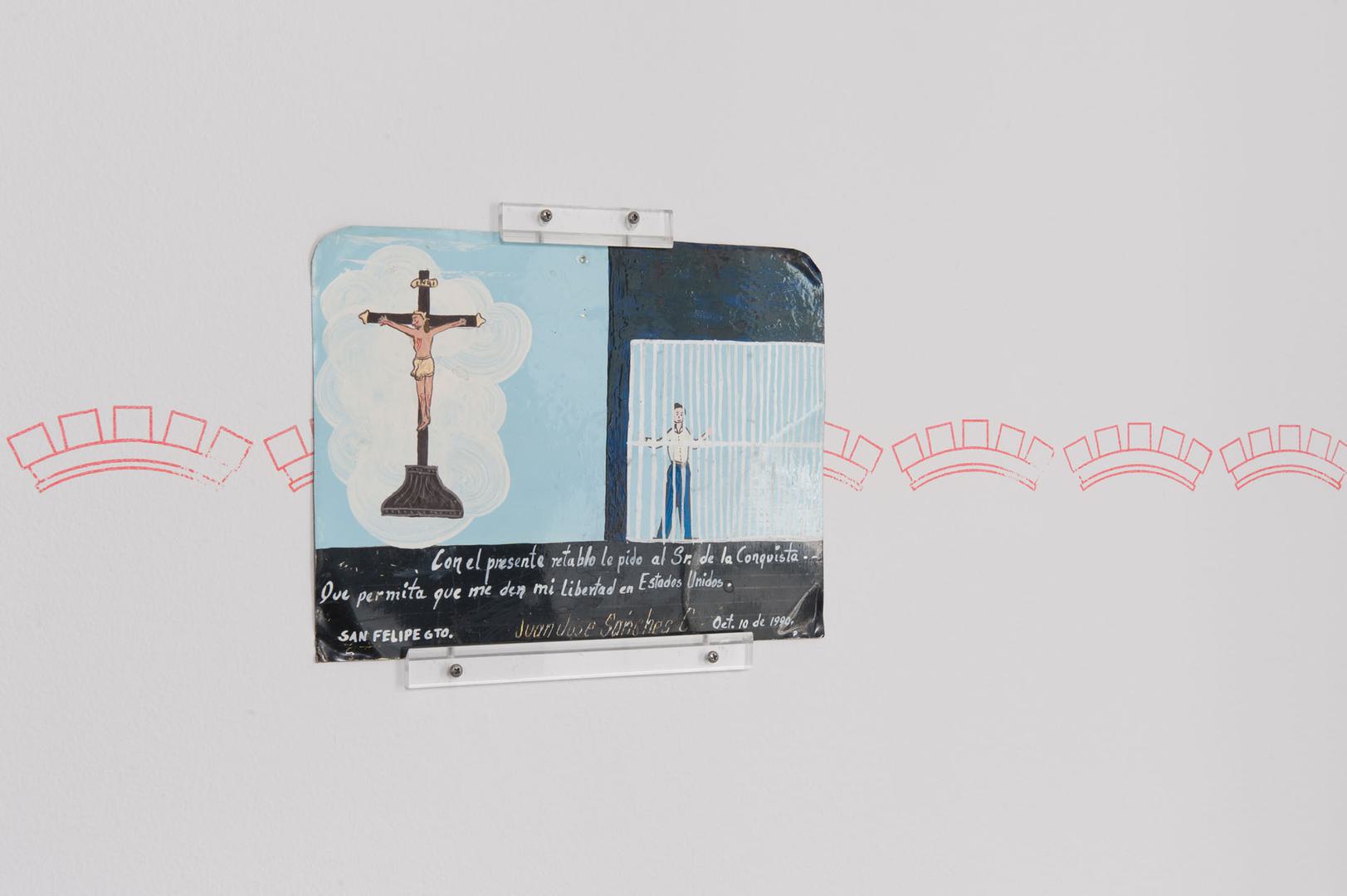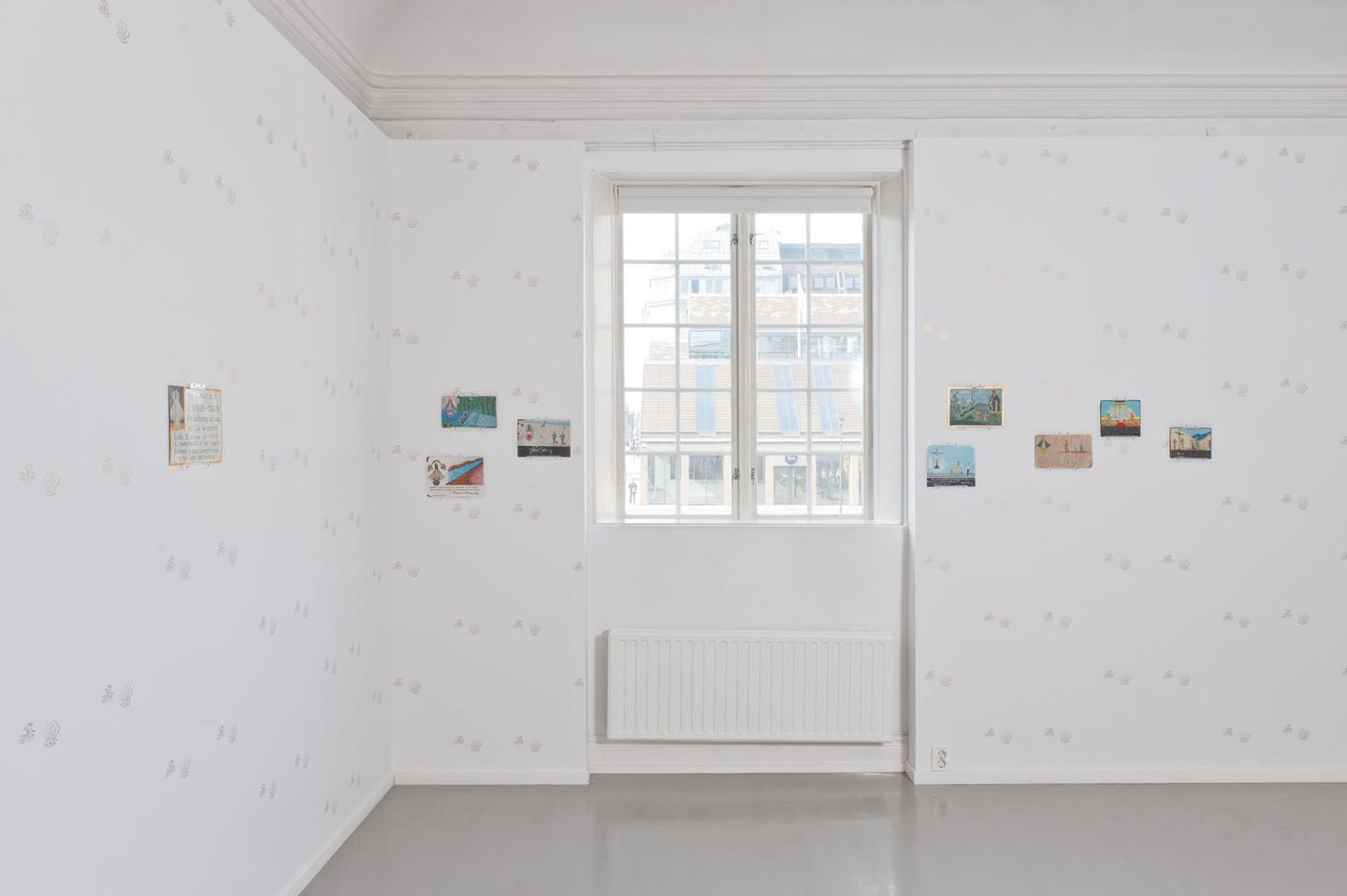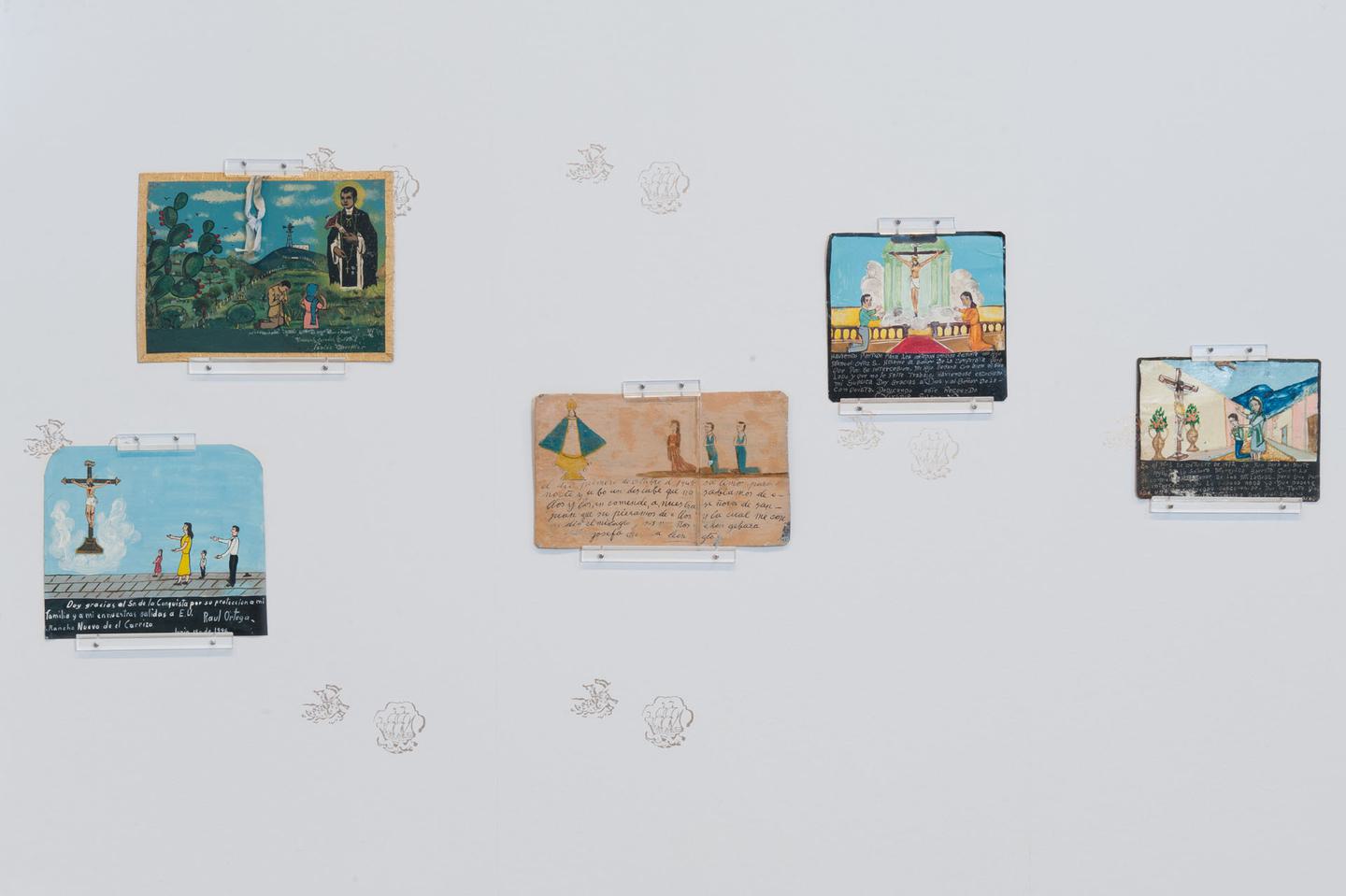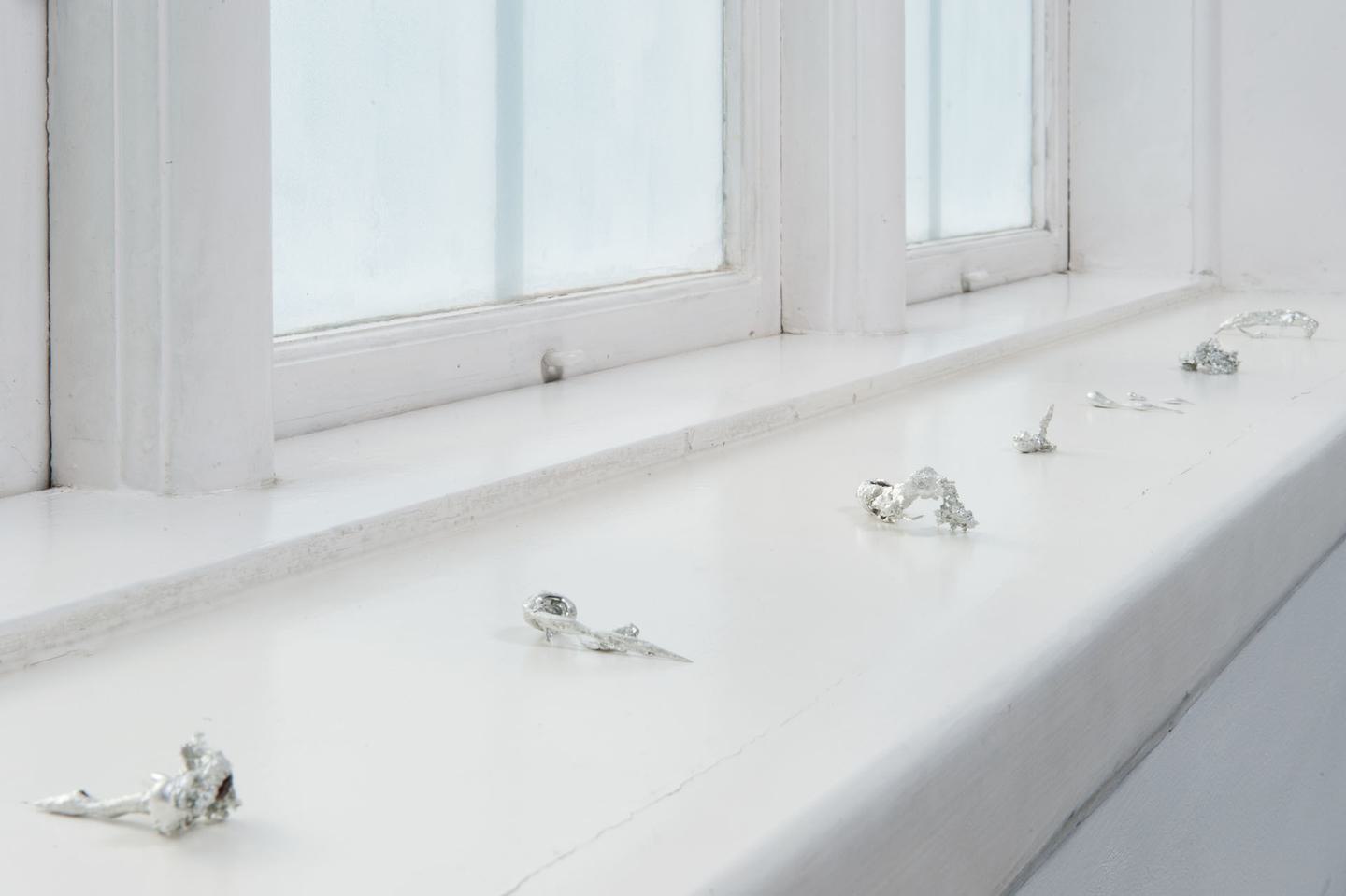Runo Lagomarsino
This Thing Called the State

Runo Lagomarsino, This Thing Called the State, 2013
Oslo Kunstforening presents the first solo exhibition in Norway with Runo Lagomarsino and inaugurates the Oslo Embassy of The Kingdoms of Elgaland-Vargaland [KREV].
The Swedish-Argentinean artist Runo Lagomarsino’s artistic practice is defined by an interest for shifts between shapes, objects, linguistic systems, continents and contexts. His work constructs frictions with language, iconography and the dominant narratives. The starting point for his installations with video, drawings, found objects, sculpture, and photography is often Latin America’s contemporary colonial heritage. Lagomarsino’s work highlights the conflicts and violence that follow colonial borders. The work emphasizes the need for a diverse language to be able to imagine another history, a different world. For the exhibition at Oslo Kunstforening/Oslo Fine Art Society Runo Lagomarsino has chosen to work with a collection of retablo paintings. Retablos are folk paintings offered as votives in gratitude for a miracle granted or favor received. The small and colorful pictures are usually painted on sheet metal. The collection on display focuses on retablos commissioned by Mexican migrants who managed to cross the border to the United States. The collection, assembled by Douglas Massey and Jorge Durant, belonging to the Princeton University, includes paintings from 1912-1996.

Runo Lagomarsino, This Thing Called the State, 2013
The term retablo derives from the Latin retro tabula, behind the altar, and refers to where the sacred depictions are placed in the Church. Along with their religious content the retablo depicts the challenges emigrants have gone through during their journeys to the north: The hazards of crossing the border and the challenges of settling in a new country. These paintings thus stand in a unique position that embodies at the same time a particular system of representation, a transcendental significance and the status of a social document.
By moving the retablo paintings from one continent to another thus establishing a new temporary location for them a significant shift occur. New combinations of meaning are created that underline how the iconography in seemingly innocent images and objects are imbued with a charged symbolic language.
For the exhibition at Oslo Kunstforening/Oslo Fine Art Society Runo Lagomarsino has produced different backdrops for the collection, creating a dialogue with the retablos in each of the gallery rooms. One of the backdrops a wallpaper entitled EntreMundos depicts a medieval equestrian figure and a vessel representing the European expansion and colonization. The equestrian figure evokes the crusades of North Africa and the Middle East while the vessel bares resemblance to Christopher Columbus’ ships from 1492 that sailed across the Atlantic Ocean towards America. The figures on the wallpaper pattern originate from saucers that Lagomarsino found in an antique shop in Malmö, Sweden.
In one of the gallery rooms the windows have been covered with a thin layer of yoghurt, allowing natural light to filter through but blocking the view to the outside world. The sentence This wall has no image but it contains geography has been applied on one of the walls with letraset. These two interventions position the narratives depicted in the paintings in relation to the current location in Oslo raising questions on migration, displacement and history.

Runo Lagomarsino, This Thing Called the State, 2013
In another of the gallery rooms a detail of a fortress has repeatedly been stamped across the walls creating an endless barrier. A stamp brings to mind passport controls and visas required to pass from one border to another – an official governmental authorization. Lagomarsino’s stamp is based on the Oslo Municipality coat of arms with the city’s patron Saint Halvard originating from the 1300th century. In the current version, from 1924, a castle wall reminiscent of the Akershus Fortress, crowns the coat together with the encircled inscription unanimiter et constanter Oslo, a united and resistant Oslo. The wall crowning the coat of arms and the walls of the gallery is found at Akershus Fortress in close proximity to Oslo Kunstforening/Oslo Fine Art Society.
Using the old tradition of Nyårskrona Lagomarsino has invited family and friends to pour small portions of melted tin into cold water. The personal and collective solidification act embodies the same sort of power carried by the retablos addressing the future in the present.
Runo Lagomarsino (b. 1977) lives and works in São Paolo and Malmö. This will be his first solo presentation in Norway.
The exhibition was made possible through the kind support of Arts Council Norway and the Fritt Ord Foundation. A special thanks goes to Nils Stærk, Copenhagen and Mendes Wood DM, São Paulo.

Runo Lagomarsino, This Thing Called the State, 2013